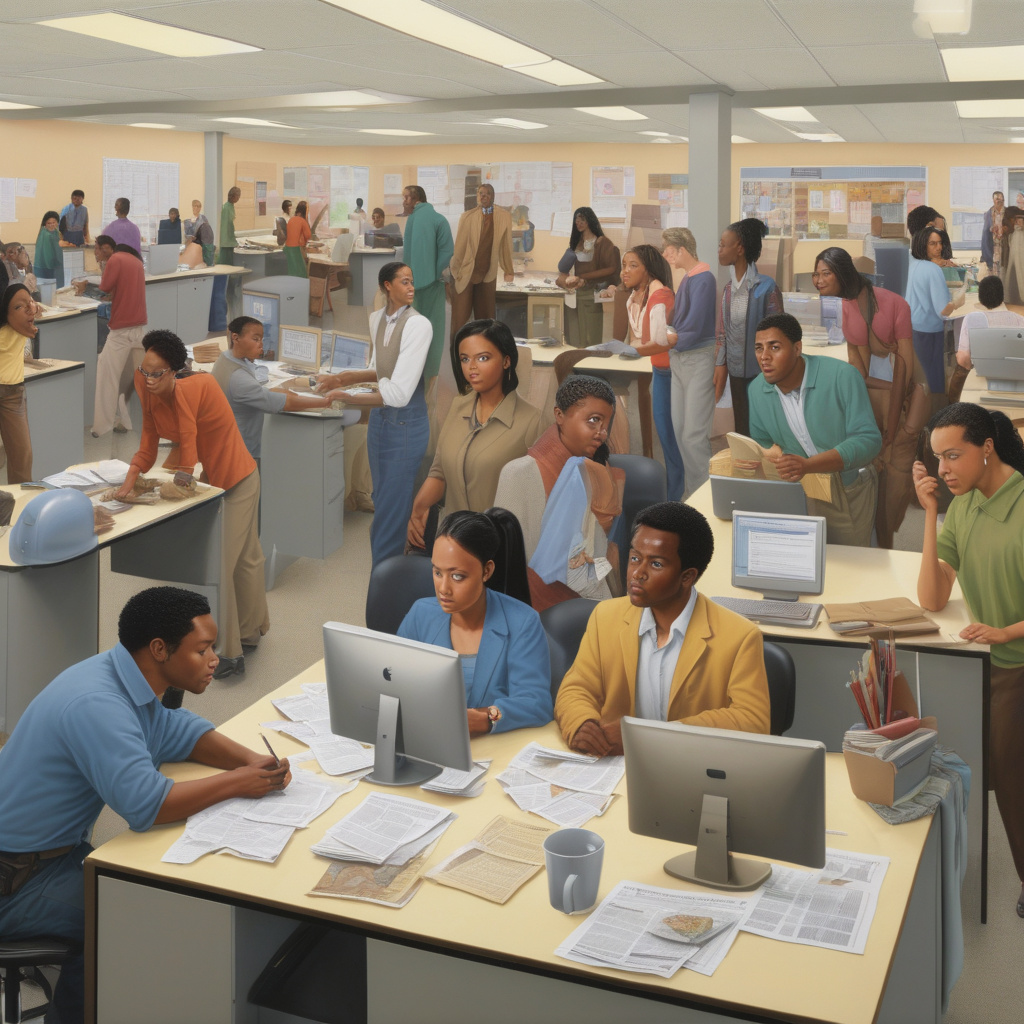Unemployment Ticks Up as Tariff-Related Uncertainty Slows Hiring
As the U.S. economy grapples with an uptick in unemployment rates, recent reports indicate that tariff-related uncertainties are casting a shadow over hiring practices across various sectors. With retail bankruptcies and store closures on the rise, the impact of these economic challenges is more pronounced than ever, prompting concerns among both employers and job seekers.
The current job market is experiencing fluctuations, with the unemployment rate inching up to levels not seen in recent years. According to the Bureau of Labor Statistics, the seasonally adjusted unemployment rate rose to 4.2% in August 2023, a slight increase from 4.0% in July. While this increase may seem modest, it represents a significant shift in the hiring landscape, particularly in industries heavily influenced by tariffs and international trade dynamics.
Tariffs, which are taxes imposed on imported goods, have been a contentious issue in U.S. trade policy. The ongoing trade tensions, particularly with major trading partners, have led to uncertainty among businesses. Companies are faced with increased costs for raw materials and finished products, prompting many to rethink their hiring strategies. The National Retail Federation (NRF) has voiced concerns that these tariffs could lead to job losses within the retail sector, which employs millions of Americans.
Retailers are particularly vulnerable to these economic pressures. As consumers tighten their spending, diminished sales figures can lead to difficult decisions regarding staffing. A report from the NRF indicated that retail bankruptcies have surged by 30% in the first half of 2023 compared to the previous year. High-profile cases, such as the recent filing for bankruptcy by a well-known department store chain, illustrate the fragility of the retail environment. With stores closing their doors, job seekers are finding fewer opportunities in this once-thriving sector.
The ripple effects of tariff-related uncertainty extend beyond retail. Manufacturing, which has been a cornerstone of the U.S. economy, is also feeling the strain. Companies that rely on imported components are encountering rising costs, leading to diminished profit margins. Consequently, many manufacturers are hesitant to expand their workforce, fearing that economic conditions may worsen. A survey conducted by the Institute for Supply Management revealed that 60% of manufacturers cited tariffs as a significant concern affecting their business operations.
The combination of rising unemployment and the uncertainty surrounding tariffs paints a worrying picture for the future of the American workforce. As companies navigate these turbulent waters, it is crucial for policymakers to consider the broader implications of trade policies on employment. While tariffs may aim to protect domestic industries, the unintended consequences can hinder job growth and economic stability.
In response to these challenges, businesses are exploring alternative strategies to mitigate risks. Some retailers are opting to invest in technology and automation to enhance efficiency and reduce reliance on labor. For instance, a leading grocery chain has implemented self-checkout systems, allowing customers to scan and pay for their items without the need for cashiers. While this innovation improves operational efficiency, it also raises concerns about job displacement, particularly in a time when unemployment is already on the rise.
Furthermore, companies are increasingly focused on diversifying their supply chains to reduce vulnerability to external shocks. By sourcing materials from multiple locations, businesses can better navigate tariff fluctuations and ensure continuity in operations. This strategy not only protects jobs but also fosters resilience in the face of economic uncertainty.
As the situation evolves, there is a pressing need for collaboration between government and industry stakeholders. Policymakers must consider the impact of trade policies on employment and work towards solutions that support both economic growth and job creation. Initiatives aimed at workforce development and retraining programs can help workers transition into sectors less affected by tariffs, providing a safety net during these challenging times.
In conclusion, the increase in unemployment, compounded by tariff-related uncertainty, presents a significant challenge for the U.S. economy. Retail bankruptcies and store closures are indicative of the struggles faced by many industries, prompting a need for both immediate and long-term solutions. By addressing the underlying causes of these economic shifts and fostering innovation, the country can work towards a more stable and resilient workforce.
retail, unemployment, tariffs, economy, hiring
